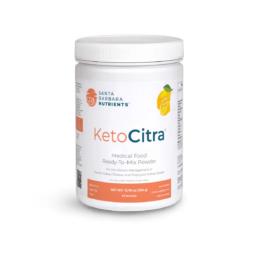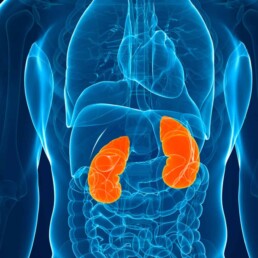As we delve deep into countless medical journals to uncover the latest on Integrative Medicine’s approach to kidney health, we are always reminded of the value of your time. Our commitment remains steadfast in curating and succinctly summarizing these vital studies for you. Welcome to the May Research and News.

Kidney Injury Linked to Hair-Straightening Products Containing Glyoxylic Acid
| In a letter to the editor, a case of a 26-year-old Tunisian woman who experienced recurrent acute kidney injury (AKI) following hair-straightening treatments is reported, underscoring potential health risks associated with cosmetic products | Over three instances, coinciding with her salon visits, she developed symptoms including vomiting, diarrhea, fever, and back pain, with laboratory tests indicating elevated plasma creatinine levels.
Notably, the hair-straightening cream used contained 10% glyoxylic acid, suspected of being absorbed through the skin and metabolized into oxalate, leading to calcium oxalate nephropathy. Experimental evidence from mouse models further supported this hypothesis, showing kidney damage and calcium oxalate deposits after topical application of the cream. These findings suggest that glyoxylic acid, a recent substitute for formaldehyde in hair products, may pose significant kidney risks. Why is this important? This case highlights a critical health issue related to widely used cosmetic products, particularly hair-straightening treatments containing glyoxylic acid. The observed link between such products and AKI calls for immediate attention to consumer safety and regulatory oversight. It stresses the need for further investigation into the nephrotoxic potential of cosmetic ingredients and suggests reconsidering the use of glyoxylic acid in consumer products to prevent potential health hazards. Such incidents underscore the broader implications of chemical exposures in everyday products and the importance of rigorous safety evaluations to protect public health. A PDF of this paper is available upon request. For requests, email us at info@inkidney.com |
Gut Microbiota’s Role in IgA Nephropathy Through IgA1 Modification
In a groundbreaking study, Gleeson et al. explored how the gut microbiome influences IgA nephropathy, an autoimmune kidney disease.
The research pinpointed that Akkermansia muciniphila, a mucin-degrading bacterium within the gut microbiota, plays a crucial role in the disease’s pathogenesis by modifying human immunoglobulin A subclass 1 (IgA1).
This modification involves the deglycosylation of IgA1, which allows it to migrate from the gut to the kidney glomeruli, leading to the formation of damaging immune complexes.
This process was evidenced in both human subjects and mouse models, where mice engineered to express human IgA1 and the human Fc α receptor I developed severe IgA nephropathy upon colonization with A. muciniphila.
The study also highlighted a disrupted correlation between α-defensin 6 and A. muciniphila in patients with IgA nephropathy compared to control subjects, suggesting a protective role of α-defensins against microbiota-induced autoimmunity.
Why is this important?
This research provides critical insights into the link between gut microbiota dysbiosis and autoimmune diseases, specifically IgA nephropathy.
By identifying the molecular interactions between gut bacteria and the immune system, the study opens new avenues for targeted therapeutic strategies that could modify gut microbiota or inhibit specific bacterial actions to prevent or treat autoimmune conditions.
Understanding the role of gut microbiota in immune system modulation not only enhances our comprehension of autoimmune pathogenesis but also underscores the potential of microbiome-focused therapies in clinical settings. This could lead to innovative therapies that manage or prevent diseases by restoring microbial balance, thus improving patient outcomes in autoimmune disorders like IgA nephropathy.
Visceral Adiposity Impacts ADPKD Progression
In a retrospective cohort study, researchers investigated the role of visceral adiposity in the progression of autosomal dominant polycystic kidney disease (ADPKD) among participants of the TEMPO 3:4 tolvaptan trial.
The study included 1053 ADPKD patients identified as high-risk for rapid disease progression. Utilizing deep learning to analyze MRIs, researchers quantified visceral adiposity and examined its association with changes in total kidney volume (TKV) and the efficacy of tolvaptan treatment.
The results revealed that higher levels of visceral adiposity were significantly linked to greater annual increases in TKV, particularly in the highest tertile of adiposity, which showed a notable correlation with rapid kidney growth.
This association was stronger in females than in males. Additionally, the effectiveness of tolvaptan in slowing kidney growth was diminished in patients with higher visceral adiposity.
Intriguingly, while greater visceral adiposity did not globally correlate with the rate of decline in estimated glomerular filtration rate (eGFR), it was associated with a more rapid decline in eGFR among females.
Why is this important?
This study highlights the significant impact of visceral adiposity on the progression of ADPKD and the modulation of treatment efficacy, underscoring the need for personalized treatment approaches that consider body composition.
By demonstrating that visceral fat is more than just a passive storage site but an active endocrine organ influencing disease progression, this research prompts a reevaluation of how ADPKD is managed, particularly in patients with normal BMI who may still be at risk due to high visceral fat levels.
Patients with ADPKD would want to get rid of their Visceral fat as much as possible, and the most effective way to do this is ketogenic metabolic therapy (KMT). Work with an experienced dietitian, nutritionist, or doctor to accomplish this.
Join us to end the kidney disease epidemic
Dietary Potassium Intake and Hyperkalemia Risk in CKD Patients
In a detailed investigation, researchers examined the association between dietary potassium intake from various food sources and hyperkalemia in patients with non-dialysis-dependent chronic kidney disease (CKD).
Conducted in Tokyo with 285 CKD patients, the study utilized a validated diet history questionnaire to estimate dietary potassium intake and assess its impact on serum potassium levels and hyperkalemia risk, defined as serum potassium ≥5.0 mEq/L.
The findings indicated a weak association between total potassium intake and serum potassium levels, but no significant link with hyperkalemia risk was observed.
However, specific food groups such as potatoes, pulses, and green/yellow vegetables positively correlated with serum potassium. Notably, patients consuming high amounts of potassium from potatoes exhibited a markedly increased risk of hyperkalemia compared to those with lower intake levels.
Why is this important?
This research underscores the nuanced role of dietary potassium in managing CKD, particularly highlighting how different food sources of potassium can differently affect the risk of hyperkalemia.
The strong association between potato-based potassium intake and increased hyperkalemia risk suggests that dietary recommendations for CKD patients should not only focus on the amount of potassium intake but also consider its sources.
These insights are crucial for clinicians and dietitians in tailoring dietary plans that minimize hyperkalemia risk while managing the nutritional needs of CKD patients, ultimately improving patient care and outcomes in CKD management.
Review article of the month
Does treatment of metabolic acidosis slow CKD progression?
Metabolic acidosis is a common complication in patients with chronic kidney disease (CKD), becoming more prevalent as kidney function declines.
Nephrologists have long relied on alkali therapy to normalize serum bicarbonate levels and potentially slow the progression of CKD, a practice supported by clinical guidelines based on animal studies and some contentious clinical trials.
This review scrutinizes the evidence behind the routine use of alkali therapy in CKD management. Given the shift in upcoming KDIGO guidelines, which propose downgrading the treatment of metabolic acidosis from a formal recommendation to a practice point, this critical appraisal is particularly pertinent.
The review aims to ascertain whether the current evidence justifies this widespread practice amidst evolving clinical guidelines.
You can download the full PDF here.
Join here to receive FREE monthly updates on the latest research in Integrative Nephrology and tips on managing kidney disease straight to your inbox.
We would love to hear your feedback. Let us know what you think of these educational materials and if you like us to focus on specific topics. Please email us at info@inkidney.com.






